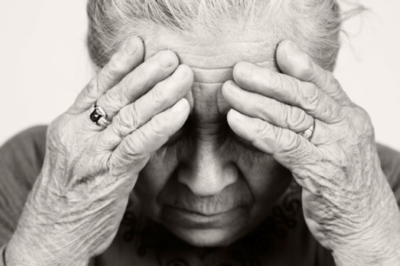 With age, it’s normal to experience changes physically, intellectually, spiritually and psychologically. These changes are influenced by a range of factors, from genetics to lifestyle and environment.
With age, it’s normal to experience changes physically, intellectually, spiritually and psychologically. These changes are influenced by a range of factors, from genetics to lifestyle and environment.
One of the most significant psychological changes that occurs with aging is a shift in priorities and values. With age there is a tendency to place greater value on social relationships, emotional stability and experiences rather than material possessions or career success. This shift in values can sometimes come with a change in one’s social roles and responsibilities. And as one becomes aware of the finite nature of life, it’s normal to then develop new goals and priorities. The mantra might become, “If not now, tell me when?”
Another important aspect of aging are the cognitive changes that occur. Sometimes the elderly experience a slower processing speed, a slower working memory and a lessened ability to pay attention. However, other cognitive functions, such as wisdom and expertise, often continue to develop and improve with age. These changes are influenced by a range of factors, which include not only genetics, but also diet and exercise and environmental factors such as education. Whatever the case, it’s not unusual to become wiser with age.
With age it’s also normal to experience a larger range of emotions, including happiness, sadness, and anxiety. The loss of a partner or friends becomes a part of life, and grief can become a constant companion to the elderly. Still other older adults tend to report higher levels of emotional stability and well-being especially when compared to younger adults. This is thought to be due to a greater sense of emotional regulation and the development of coping skills over time.
Also, studies have shown that social engagement is associated with an improved sense of well-being and a reduced risk of depression and other mental health conditions. If social engagement increases with age, this can positively impact mood. If social engagement decreases with age the reverse can happen. Social support, including emotional support and practical assistance, is also important for older adults, particularly those who may be experiencing mental or physical health challenges.
Another factor in aging is placebo. Placebo is powerful and it’s true that one’s attitude toward aging itself impacts one’s sense of well-being. Older adults who view aging as a positive and a meaningful experience tend to have better psychological outcomes than those who view aging negatively. Positive attitudes toward aging are also associated with greater resilience and better coping skills, as well as a greater sense of purpose and meaning in life.
In conclusion, aging is a unique time of life, impacted by many factors. It can be a time of growth that creates a sense of well-being or a time of depression and dread. If you or someone you know is looking for support with the vicissitudes of growing old, consider the nCenter’s integrative approach to mental health. We are committed to addressing all the issues that aging presents and doing that in a caring and thoughtful way.

